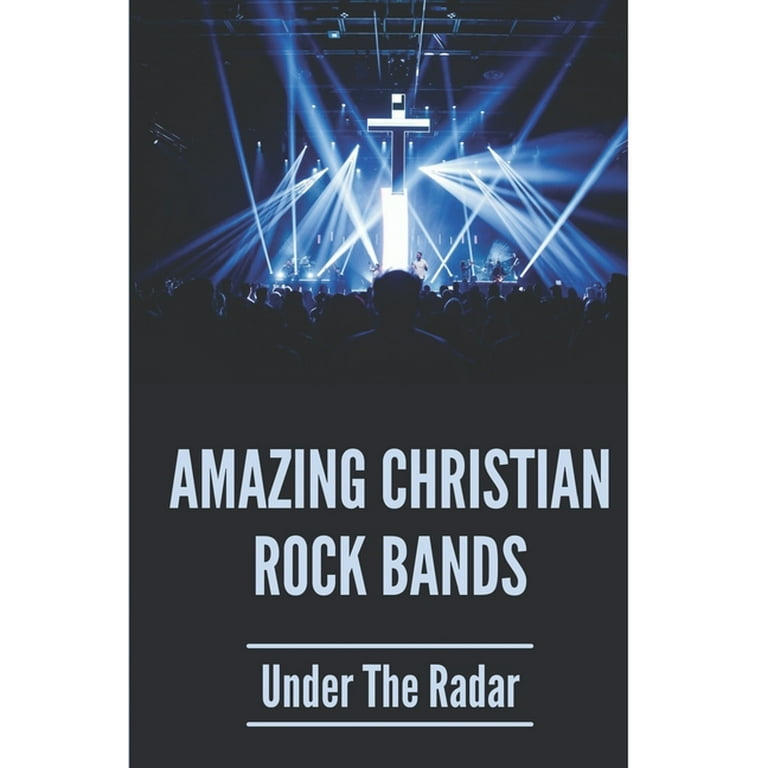Rock Out With Belief: Study the Globe of Christian Rock Music
Christian rock music has actually frequently been forgotten or disregarded as a specific niche category, outweighed by the mainstream appeal of its secular counterparts. What numerous fall short to understand is the rich background, varied subgenres, and influential numbers that have actually formed the world of Christian rock. From its modest beginnings in the late 1960s to its influence on mainstream music today, Christian rock has sculpted out an one-of-a-kind space that effortlessly mixes faith and rock-and-roll. Checking out the power of confidence in the lyrics and the extensive effect it has had on audiences, this conversation will drop light on the untold story of Christian rock and why it proceeds to resonate with audiences around the globe.
The Origins of Christian Rock
The emergence of Christian rock can be traced back to the late 1960s and early 1970s, when a wave of musicians looked for to integrate their faith with the energetic audios of rock music. This activity was an action to the enhancing popularity of rock-and-roll and the desire to get to a younger generation with Christian messages and values - Christian Rock. Christian rock bands started to develop, blending aspects of pop, rock, and scripture music with verses that focused on spiritual styles and biblical mentors
Among the pioneers of Christian rock was Larry Norman, whose 1969 album "Upon This Rock" is taken into consideration by several to be the first full-length Christian rock album. Norman's music integrated the guitar-driven audio of rock-and-roll with verses that revealed his Christian beliefs and challenged social norms. Other significant musicians of this time included Randy Stonehill, Phil Keaggy, and Petra, who helped to establish Christian rock as a reputable style within the music industry.
The beginnings of Christian rock were not without conflict. Some traditionalists within the Christian community saw rock-and-roll as inherently sinful and inappropriate with Christian worths. Nonetheless, these objections did not deter the growing popularity of Christian rock, as it remained to get a specialized follower base and broaden its reach.
Exploring Christian Rock Subgenres
Christian rock incorporates a varied variety of subgenres that cater to the unique music choices and spiritual expressions of its listeners. One of the most preferred subgenres is modern Christian rock, which integrates components of rock, pop, and alternate music.
An additional subgenre is Christian metal, which incorporates hefty guitar riffs, aggressive drumming, and intense vocals. Bands like Satanic Force Hunter and Red are understood for their powerful and impactful noise, delivering messages of confidence by steel music.
Christian hard rock is one more subgenre that emerged in the late 20th century. Bands like MxPx and Relient K instill their music with fast-paced, energised punk rock instrumentation while supplying lyrics that discover styles of confidence, question, and personal experiences.
Additionally, there are subgenres like Christian alternate rock and Christian indie rock, which provide an extra alternate or indie-style noise. These subgenres frequently include poetic and introspective verses that look into spiritual and thoughtful topics.
Leaders and Influential Numbers in Christian Rock
As the Christian rock subgenres continue to progress and bring in a varied range of audiences, it is very important to acknowledge the leaders and influential numbers that have formed and propelled the genre onward. These people have not only added to the advancement of Christian rock-and-roll yet have likewise led the way for future musicians and bands to explore their confidence through the power of rock music.
Among the pioneers in Christian rock is Larry Norman, frequently referred to as the "papa of Christian rock." In the early 1970s and late 1960s, Norman's songs tested the boundaries of contemporary Christian music by incorporating aspects of rock and individual. His cd, "Only Visiting This World," launched in 1972, is taken into consideration a landmark in Christian rock history.
One more prominent figure in Christian rock is Petra, a band created in the 1970s. They brought a much heavier noise to the style and turned into one of the first Christian rock bands to achieve mainstream success. Their cd "Beyond Idea" in 1990 is considered as their advancement work.
Other significant numbers and significant pioneers consist of Amy Give, who brought Christian music into the pop mainstream in the 1980s, and Switchfoot, who acquired popularity in the 2000s with their alternate rock audio.
These leaders and significant numbers in Christian rock have left an enduring influence on the category, producing a platform for Christian artists to express their confidence through rock songs while additionally reverberating with a large target market - Christian Rock. Their contributions continue to form the future and influence of Christian rock
The Impact of Christian Rock on Mainstream Music

Over the years, Christian rock bands and artists have not only gained popularity within the Christian community yet have actually additionally made an influence on the more comprehensive songs scene. Lots of Christian rock bands have embraced the same musical components and styles as their secular counterparts, such as alternative rock, pop rock, and also heavy metal.
Additionally, the lyrics of Christian rock tunes commonly tackle global motifs of love, redemption, and hope, which reverberate with audiences no matter their religious history. This has actually helped Christian rock artists get in touch with a wider fan base and gain acknowledgment in the mainstream songs sector. Actually, several Christian rock bands have actually accomplished mainstream success, with their tracks charting on mainstream radio stations and their albums getting to high placements on the Signboard charts.
Additionally, the impact of Christian rock can be seen in the crossover of Christian artists right into the mainstream music market. Many Christian rock artists have effectively transitioned right into the nonreligious you can look here music scene, teaming up with non-Christian artists and obtaining recognition for their ability and musical payments. This crossover has not just enabled these musicians to reach a wider target market but has actually also assisted damage down barriers and promote a better understanding and acceptance between the Christian and nonreligious music areas.
The Power of Faith in Christian Rock Verses

One persisting theme in Christian rock verses is the idea of surrendering to a greater power. Songs like "I Give up All" by Newsboys and "Provide Me Jesus" by Jeremy Camp stress the requirement to relinquish control and rely on God's plan. These verses remind audiences that they are not the only one in their struggles which belief can provide convenience and assistance.
Christian rock verses also discover the idea of God's love and mercy. Tracks like "Impressive Elegance (My Chains Are Gone)" by Chris Tomlin and "Retrieved" by Big Daddy Weave highlight the transformative power of God's love, supplying a message of hope and redemption for those who might feel lost or damaged.
Additionally, Christian rock verses often reveal gratitude for God's true blessings and stipulation - Christian Rock. Tunes like "Fortunate Be Your Name" by Matt Redman and "10,000 Reasons (Honor the Lord)" by Matt Maher encourage believers to commend God in all situations, identifying His faithfulness and elegance
Verdict
To conclude, Christian rock songs has actually developed from its beginnings to come to be a diverse genre with different subgenres. Pioneers and prominent numbers have actually played a significant role in shaping the style and spreading its message of confidence. Christian rock has also had an effect on mainstream songs, affecting and inspiring artists from various styles. Via its effective lyrics, Christian rock music remains to link with audiences and share messages of love, hope, and confidence.
From its modest beginnings in the late 1960s to its influence on mainstream songs today, Christian rock has actually carved out a distinct area that perfectly blends faith and rock songs.The development of Christian rock can be traced back to the early 1970s and late 1960s, when a wave of musicians looked for to incorporate their site web belief with the energetic sounds of rock music.One of the leaders of Christian rock was Larry Norman, whose 1969 album "Upon This Rock" is considered by several to be the initial unabridged Christian rock album. One of the most popular subgenres is modern Christian rock, which incorporates aspects of rock, pop, and alternative music. Several Christian click to find out more rock bands have actually adopted the very same music elements and genres as their nonreligious counterparts, such as alternative rock, pop rock, and also heavy metal.